How to Track Business Performance Without Spreadsheets
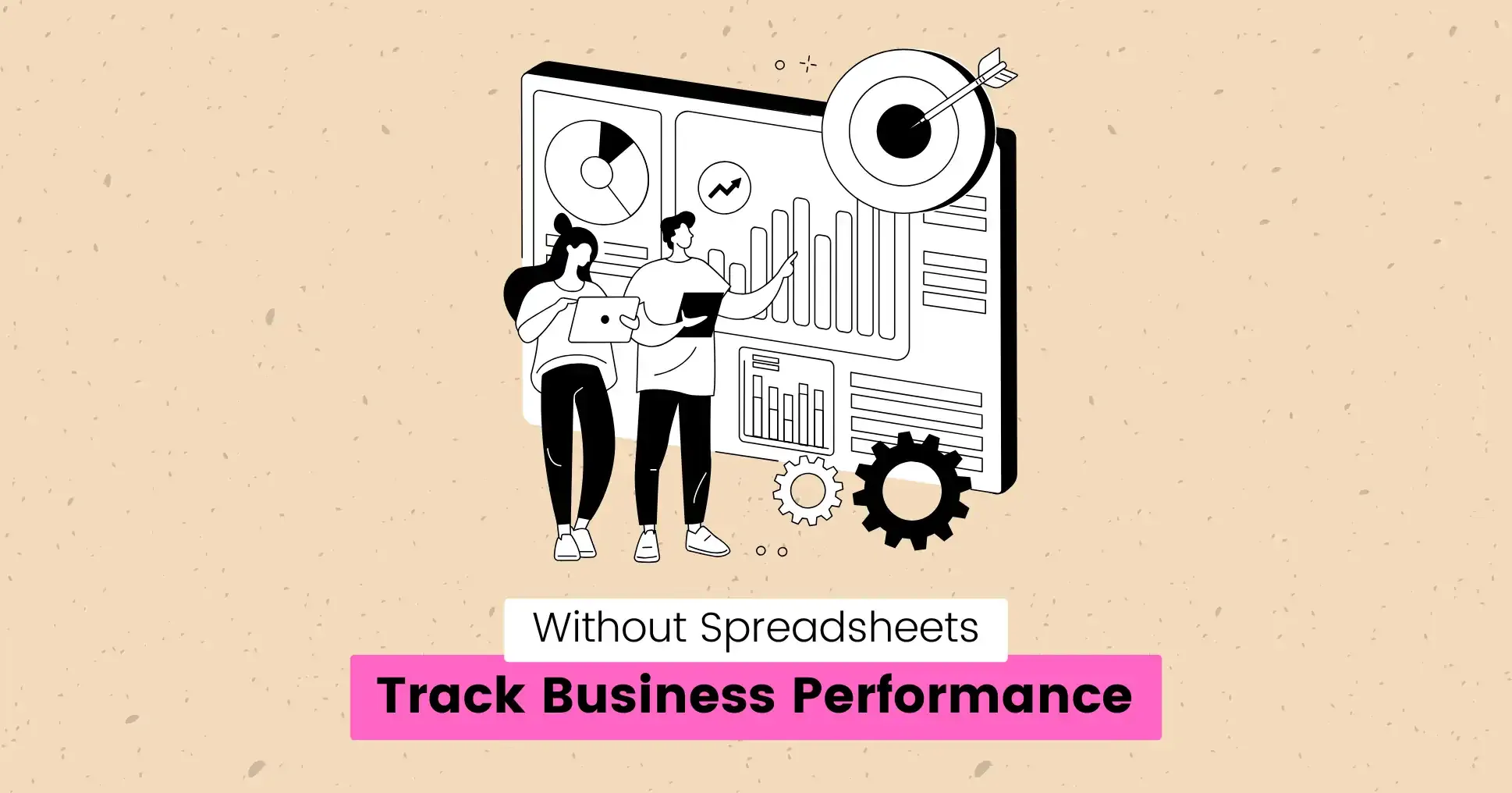
Spreadsheets are the preferred choice for many businesses due to their ease of use.
Your company might be using one right now.
But is it the best tool for managing business data and tracking performance?
While spreadsheets may seem convenient initially, they often create more challenges as your business grows.
One wrong formula could disrupt your entire analysis, and you end up wasting time fixing mistakes instead of focusing on what matters.
Luckily, you don’t need to rely on spreadsheets anymore.
Advanced systems provide faster and more accurate ways to monitor success without any confusion.
Keep reading to find out how you can measure performance without using spreadsheets and make smarter decisions.
Why Is It Important to Measure Business Performance?
Business performance is defined by how well a company meets its goals and objectives.
It includes various factors, such as:
- Growth and revenue
- Profit and loss
- Operational effectiveness
- Employee productivity
- Customer satisfaction
By evaluating these areas, you can understand how well your company is doing and get valuable insights to identify areas for improvement.
Here’s why this matters:
- You can figure out what works and what doesn’t.
- Adjust marketing or sales strategies accordingly.
- Make data-driven decisions using key metrics.
- Identify market trends and stay ahead of competitors.
Why You Should Not Use Spreadsheets for Business Operations
Spreadsheets are fine when your company is just starting out.
Most people are familiar with tools like Excel or Google Sheets, which are affordable and easy to use.
But they become an obstacle as your organization scales.
Here are the reasons why spreadsheets are not suitable for your business.
- Not for Large Datasets: Spreadsheets are customizable and easily accessible. But when you have to work with vast amounts of data, scrolling through hundreds or thousands of rows and columns may be stressful. You’d need to export the dataset every time you want to work with it.
- Prone to Errors: With so many people working on a single spreadsheet, it’s hard to tell who edited or made a mistake. A single incorrect formula or data entry can lead to false results, which may impact important decisions. Imagine calculating monthly profits with a broken formula. You might think you are earning more (or less) than you actually are.
- Time-Consuming: Manual data entry takes hours, especially when managing multiple sheets. If you’re tracking sales across multiple locations, you will need to manually collect and enter data from each one.
- No Real-Time Data: Spreadsheets don’t update automatically, so they can’t provide live insights. Also, it is difficult to visualize data or generate reports.
- Hard to Scale: As your company grows, managing larger datasets becomes difficult. There are more chances of errors, and you end up wasting valuable time updating data or double-checking results.
Need Help Evaluating Your Software Options?
Our experts can help you analyze your specific needs and guide you through the decision process. Schedule a free consultation to discuss your requirements and find the best solution for your business.

Ways to Track Business Performance Without Spreadsheets
Now that you know why spreadsheets are not the best tool to track your business performance, it is time to switch to automated solutions.
Modern tools are designed to simplify business performance monitoring and improve efficiency.
This can free up time, allowing your team to focus on more strategic activities.
Here’s how you can do this:
Define Key Performance Indicators (KPIs)
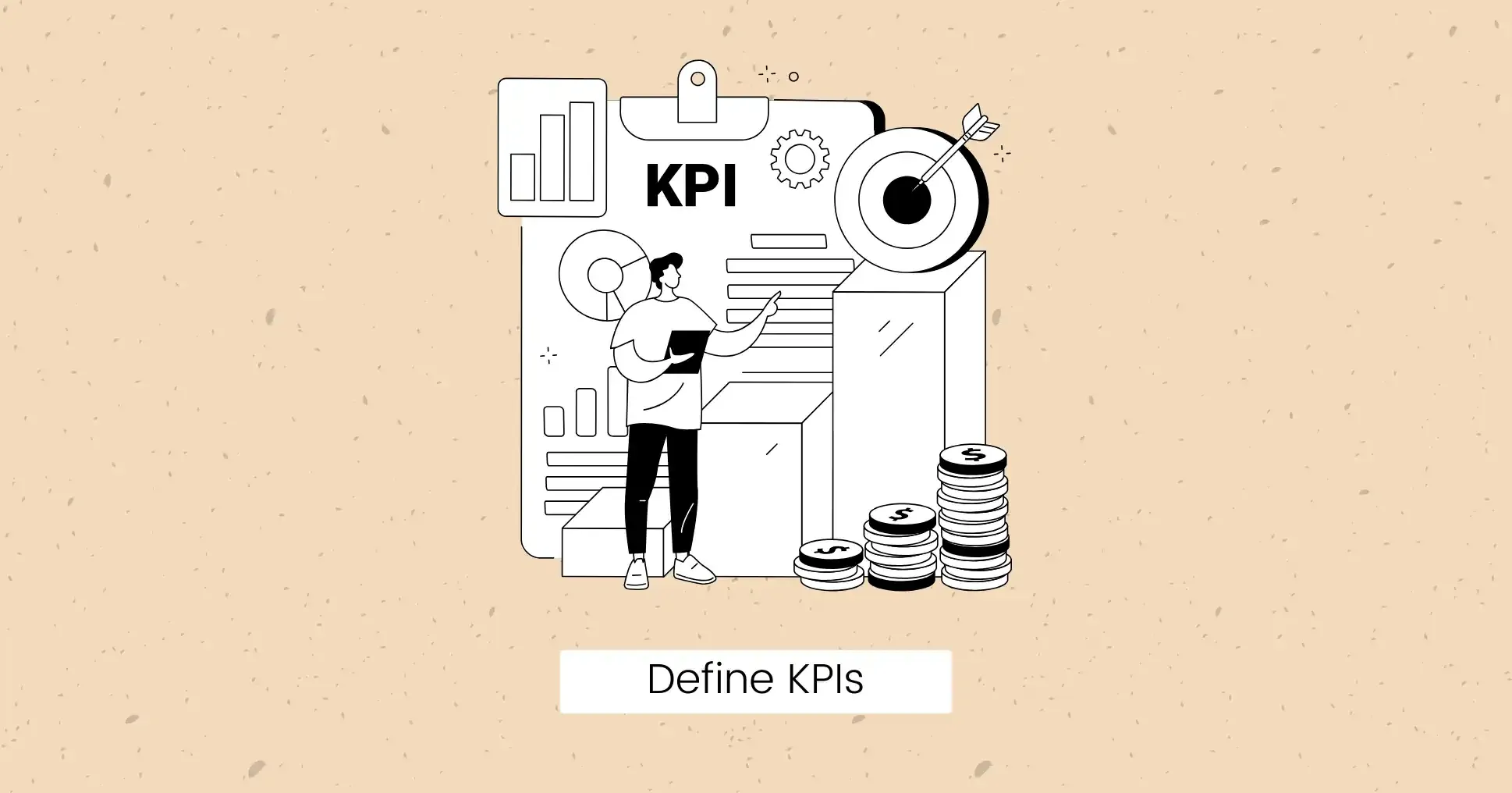
Identify the metrics that reflect your business’s success and how effectively your team achieves specific goals.
Think of it like a health check that helps measure progress and determine whether your strategies are working.
When you know what to keep an eye on, you can make data-driven decisions instead of focusing on unnecessary details.
KPIs vary based on the industry and business objectives.
Some examples include:
- Customer Acquisition Cost (CAC): The costs of gaining a new customer.
- Conversion Rate: The percentage of leads who make a purchase.
- Sales Growth: Increase in sales over a specific period.
- Retention Rate: The number of customers that return after initial engagement.
- Churn Rate: Customers lost over a specific time period.
- Net Profit: The actual profit a business keeps after all expenses.
- Return on Investment (ROI): The profitability of specific investments.
Having a custom software solution that can help you track such metrics is important. And for that purpose, you can hire development teams like JetCoders who can provide customized software for your business needs.
Use Performance Management Software
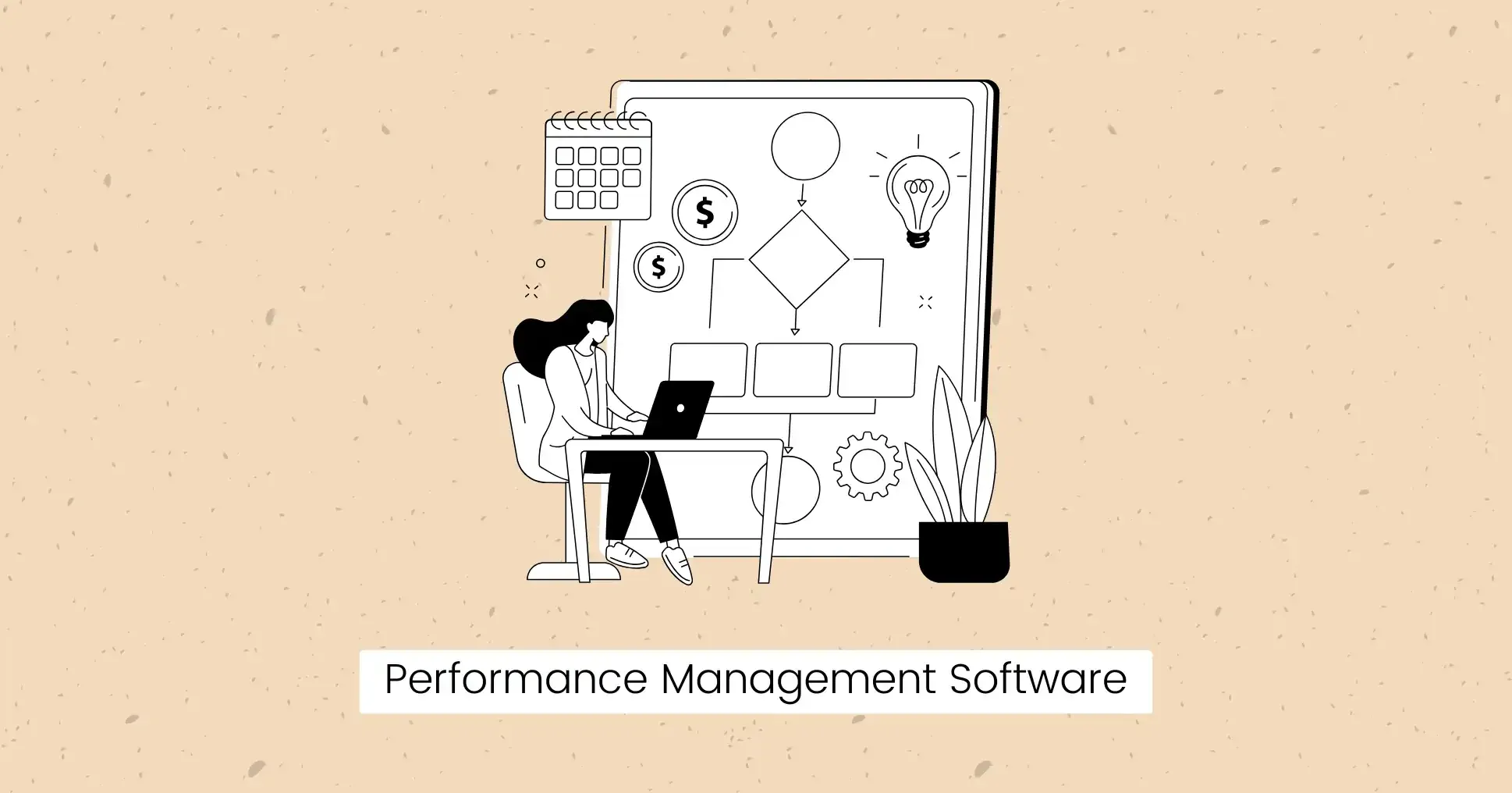
Performance management software is a tool that helps businesses monitor and analyze key metrics and gain actionable insights to improve their operations.
Instead of relying on spreadsheets, it centralizes data directly from your sales CRM and presents it in a way that is easy to understand.
Here are some benefits of using performance management systems:
- Automation: Automate repetitive tasks to save time. For example, you can use POS (point of sale) software to manage inventory and track daily sales without entering data into a spreadsheet.
- Actionable Insights: Automatic data collection and tracking helps businesses make better decisions based on factual evidence.
- Custom Reports: Get detailed reports and dashboards for data visualization. For instance, a small business owner can view monthly profit margins using simple charts without spending hours on calculations.
- Integrations: Connect with your existing tools like CRM or accounting software for data collection and analysis.
- Alerts and Notifications: Get instant alerts when issues like a sudden drop in website traffic or sales are detected.
- Accuracy: Reduce the risk of human errors. For example, numbers pulled directly from a POS system provide accurate sales performance analysis.
Digitalize Your Business!
Discover how automation can help you save time and resources. Let us advise you to gain a decisive competitive advantage.

Implement Digital Dashboards
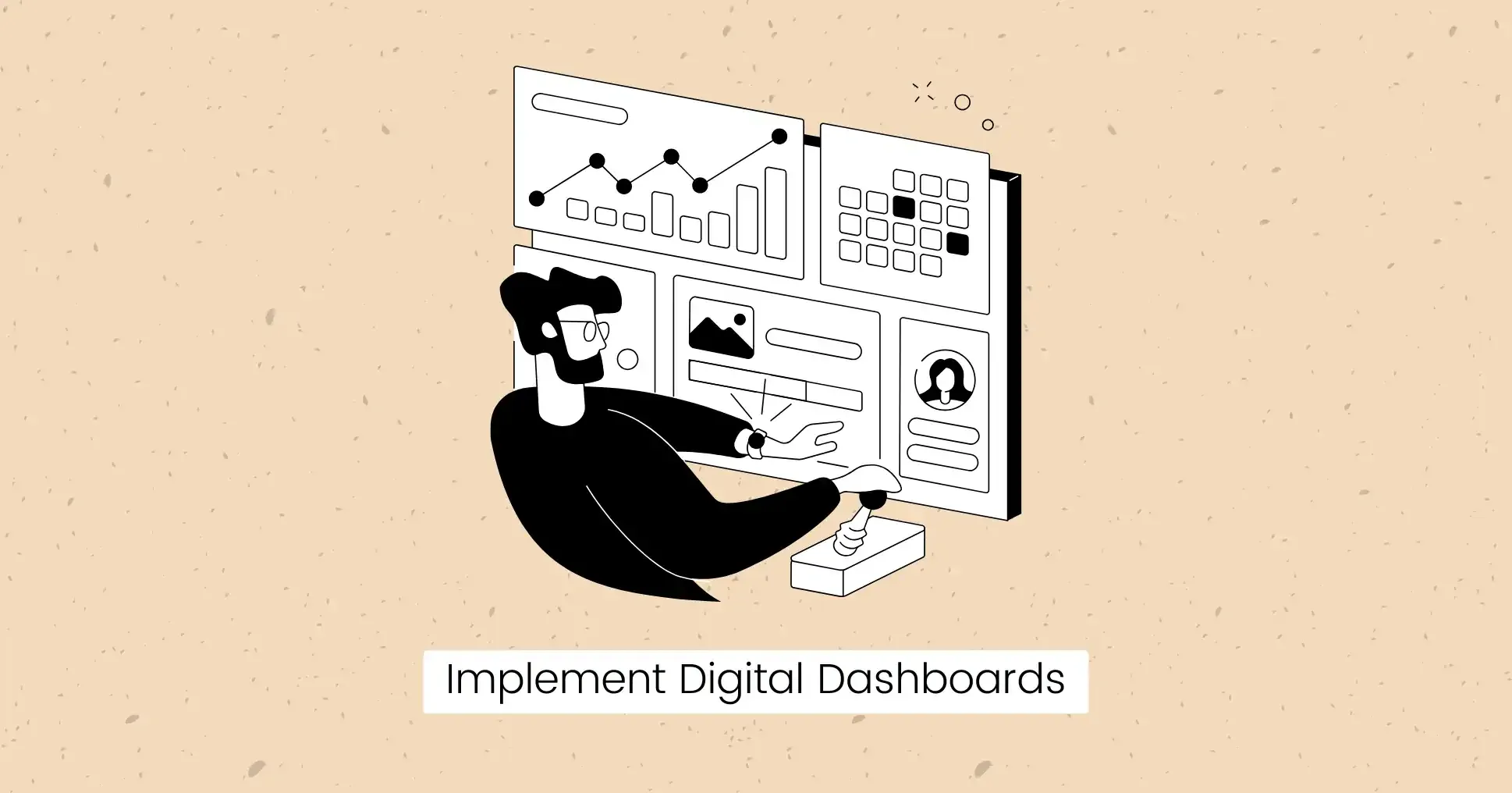
Custom Digital dashboards provide live updates and real-time insights into key metrics by combining data from multiple sources into a user-friendly interface.
This gives you an overview of your business at a glance, helping you make quick decisions.
For example, dashboards display live data from integrated tools and show daily sales, website traffic, and inventory levels side by side.
These tools help in many ways:
- Integrate Data Sources: Connect to your CRMs, accounting, and analytics platforms to keep your data up-to-date.
- Customization: Organize your layout to focus on the most important metrics.
- Data Visualization: Use graphs, charts, and color indicators to make data easier to interpret.
- Scale with Your Business: Digital dashboards can handle more data and KPIs as your business expands.
Tip: You can get customizable digital dashboards that can help you track the insights of your business by hiring professional developers .
Generate Automated Reports
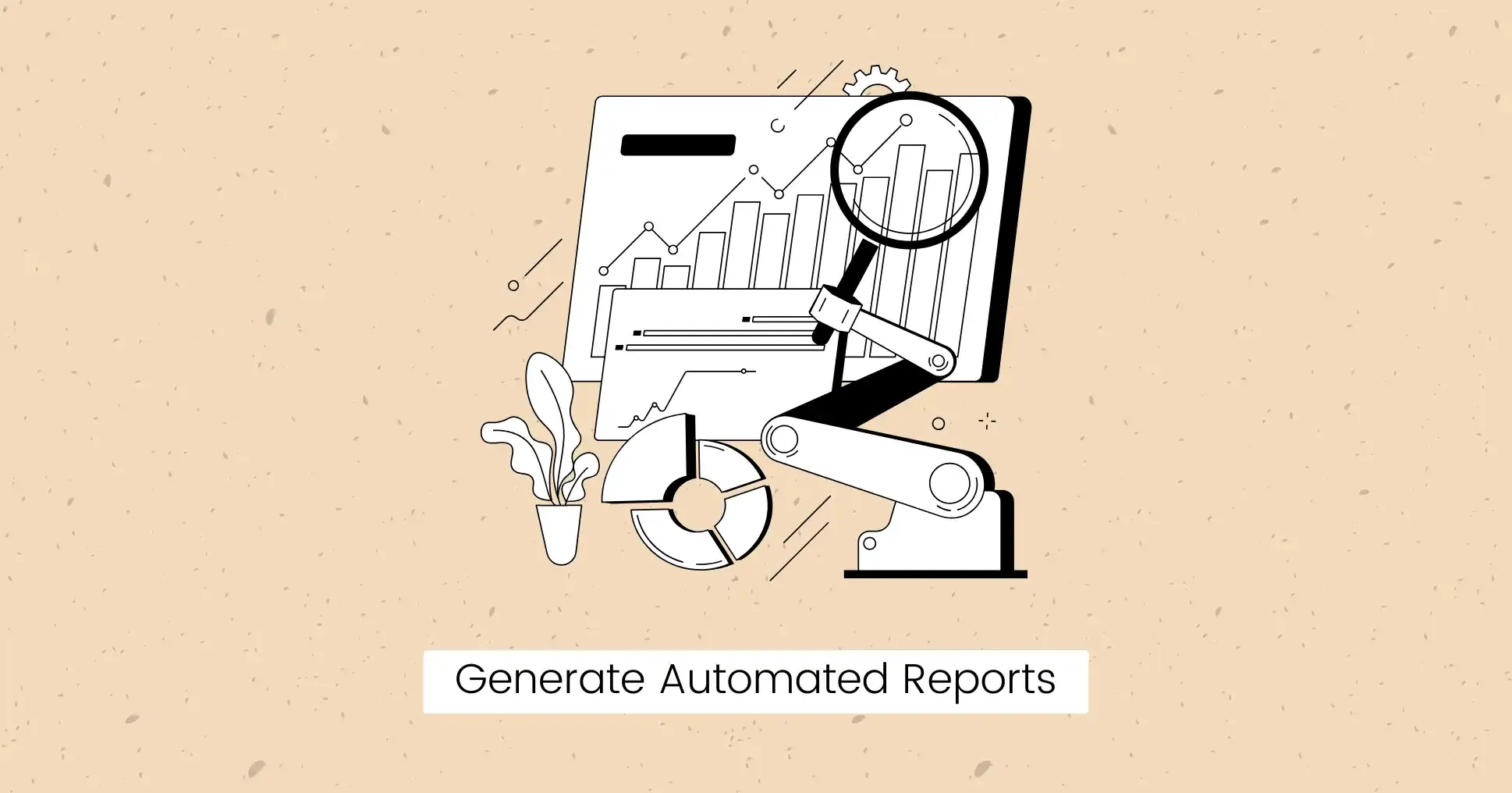
Leverage your digital dashboards to create detailed reports for regular performance monitoring.
Automated reports can include:
- Sales trends
- Monthly expenses
- Customer feedback
- Team meeting reviews
- Client updates
This saves hours of work, reduces the chance of mistakes, and helps you manage your finances more effectively.
For example, with a few clicks, you can create a financial report showing monthly profit and loss and share it with stakeholders.
Collaborate with Team Members

Many software tools allow teams to collaborate so everyone has access to updated data.
This prevents miscommunication and ensures all stakeholders are on the same page.
You can track project timelines, assign tasks, and provide updates in real-time instead of managing individual spreadsheets.
Strengthen Your Team with Experts
Looking for specialized skills for your software project? Our experienced team integrates seamlessly and moves your project forward. Contact us for customized solutions!

Tools for Tracking Business Performance
Numerous KPI tracking tools available in the market help enhance your decision-making capabilities.
Here’s a list of some of the best technical tools for monitoring business performance:
- Tableau: Advanced data visualization with dashboards.
- Geckoboard: User-friendly KPI dashboard.
- Salesforce: Customer relationship management (CRM) platform.
- HubSpot: AI-powered CRM platform.
- Zoho Analytics: Analytics tool for small and medium-sized businesses.
- Asana: Cloud-based task and project management tool.
- Xero: Accounting software for small businesses.
- Monday: Project management and tracking tool.
Ready to Move Beyond Spreadsheets?
Let our experts help you implement the right tools and systems for your business performance tracking. Get in touch for a personalized solution that fits your needs.

Final Words
While spreadsheets have some advantages, they are not practical for business growth.
Software solutions save time, automate routine tasks, and provide accurate data analysis for strategic development.
Outsource to experts to create custom software solutions that will help you focus on core activities and lead your business to success.
FAQs
Are there any security risks associated with using spreadsheets?
Spreadsheets are not intended for secure, large-scale data handling. Security risks include data breaches from unauthorized access, accidental sharing, lack of encryption, and revealing sensitive information.
How to choose the right KPIs for measuring business performance?
Choose KPIs that:
- Align with your goals.
- Are measurable and realistic.
- Provide actionable insights.